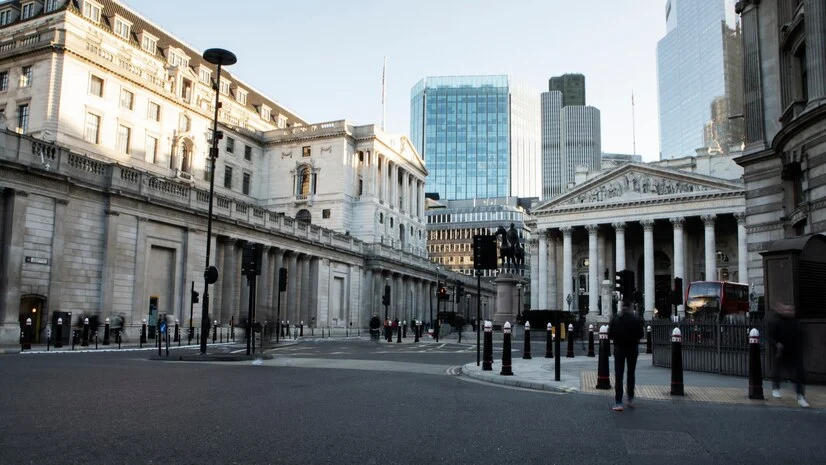For decades, London has symbolised the pinnacle of property ownership in the UK. Home to historic neighbourhoods, international appeal, and steady capital appreciation, the city has drawn investors from across the globe. But in 2025, a pronounced shift is occurring. Rising costs, changing work patterns, and attractive regional alternatives are leading many buyers and investors to rethink their London-centric property strategies.
Across the UK, a new trend is emerging: buyers are setting their sights on Northern cities like Manchester, Leeds, and Newcastle. These cities are not only more affordable but are also undergoing rapid urban transformation, offering stronger rental yields and better long-term prospects.
Is this the end of the London property dream? Not entirely, but it is certainly being redefined as people look beyond the capital for smarter, more long-term investment opportunities. The prestige of a London address still retains weight, but it is no longer the default choice for forward-looking investors. The new property frontier lies in regional innovation, community-led development, and future-ready infrastructure.

Why More People Are Ditching London for Affordable, High-Growth Property Markets Up North
As property prices in London continue to surge beyond the reach of average buyers, Northern cities have become attractive alternatives. They offer a rare combination in today’s market: affordability, lifestyle appeal, strong rental returns, and future growth potential. This is prompting both first-time buyers and seasoned investors to examine property investment in Northern cities as a long-term strategy.
Whereas London’s property ladder remains largely inaccessible, cities like Manchester and Leeds offer entry-level homes under £250,000, compared to over £530,000 in the capital. But affordability is just one factor. These Northern hubs are investing heavily in regeneration, infrastructure, and industry, all of which point to a shift in the genuine estate centre of gravity in the UK.
Moreover, remote and hybrid working models mean fewer people need to live in London to access London-based employment, further weakening the capital’s monopoly on demand. In this context, the North is not just a fallback option. It is a compelling opportunity in its own right, supported by planned urban planning and renewed government focus on decentralisation.
With a better work-life balance, cheaper living costs, and growing career opportunities in emerging industries, the North appeals to both investors and residents alike. This alignment of economic and social incentives creates fertile ground for sustained growth in the property market beyond the capital.

The Rise of Northern Cities as Alternative Property Hotspots
Over the past five years, a growing number of UK cities have emerged as strong contenders in the national property market. Far from the traditional North-South divide, cities such as Manchester, Leeds, Sheffield, and Newcastle are commanding attention from both domestic and international buyers.
Manchester: A Northern Powerhouse
Manchester is leading the Northern charge, consistently ranked as one of the UK’s top-performing cities for property growth. The city’s economy is buoyed by a diverse mix of sectors from finance and tech to media and education. Its property market has seen annual growth of 5 to 7 percent, with rental yields averaging 6 to 8 percent in key neighbourhoods like Salford, Ancoats, and the Northern Quarter.
Manchester’s connectivity, cultural vibrancy, and ambitious infrastructure projects are all helping to lead demand. From HS2 to new university expansions and enterprise zones, Manchester is increasingly viewed as a flexible counterpart to London. In addition, the city’s planned urban renewal efforts are ensuring that it remains an inclusive, forward-thinking metropolis with investment appeal across income brackets.
Leeds: A Financial and Cultural Magnet
With a flexible legal and financial services sector, Leeds offers a solid employment base and a vibrant city centre. Major projects like the South Bank regeneration are expanding its housing and commercial stock while improving connectivity. Leeds’ blend of urban charm and investment opportunity make it one of the most promising regional property markets in 2025.
Leeds has also become a hub for young professionals and creatives, making it attractive not just for investors but for residents looking for a high quality of life. Its strong student population and established industries provide consistent rental demand year-round. Furthermore, improved rail links and future HS2 connectivity promise to improve commuter potential, strengthening the city’s appeal even further.
Newcastle: Affordability Meets Innovation
Newcastle is undergoing a quiet but powerful transformation. With some of the lowest average house prices among major cities, the city is attracting young professionals and first-time buyers in droves. The Newcastle Helix project and increasing investment in digital infrastructure highlight the city’s potential to become a tech hub, supporting long-term genuine estate growth.
Newcastle’s university presence, transport links, and increasing business activity make it a rising star in the UK’s regional property environment. Local incentives and digital economy growth make it particularly attractive to future-focused investors. With an emphasis on sustainability and smart-city integration, Newcastle is shaping up to be one of the UK’s most forward-thinking urban centres.

Why Buyers Are Leaving London
Despite its reputation, London is losing its shine for many aspiring homeowners and property investors. Several interconnected factors explain this migration from South to North.
Unaffordable Prices
London’s property prices are among the highest in Europe, with average home values exceeding £530,000 as of 2025. Many young professionals and middle-income families are priced out, particularly in central boroughs. In contrast, cities like Leeds and Sheffield offer entry-level homes for half or even a third of that price.
High property taxes, escalating maintenance costs, and rising interest rates also contribute to London’s dwindling appeal. For many, the dream of owning a property in the capital has become financially unrealistic, pushing them to examine new regions where their money stretches much further.
Evolving Lifestyle Priorities in the UK
Shifting attitudes toward work and lifestyle have prompted many professionals to prioritise space, affordability, and community features that are increasingly hard to come by in the capital. Northern cities provide a better cost-of-living ratio, more green spaces, and less crowded environments, all while maintaining strong urban appeal.
This lifestyle shift is also evident in changing family structures, with many opting to raise children outside the hustle of the capital. Access to good schools, affordable childcare, and a slower pace of life are becoming increasingly valued, influencing both residential choices and event planning trends across the country.
Higher Rental Yields in the North
Investors are chasing returns, and the North delivers. While London rental yields average between 2 to 3 percent, cities like Manchester and Liverpool boast yields between 6 to 8 percent, particularly in new-build developments and near universities. This makes buy-to-let in Northern UK not only more affordable to enter but also more profitable over time.
This higher rental income means quicker ROI, especially important in times of economic uncertainty. For portfolio diversification and long-term gains, the North offers stability and promise that the capital currently cannot match.

Regional Regeneration Projects Leading Growth
A critical driver behind the rise of Northern property markets is the surge in regeneration and infrastructure development. These initiatives are not just improving the liveability of these cities but are also improving their long-term investment potential.
Manchester’s Northern Gateway
The £1.4 billion Northern Gateway initiative will add over 15,000 new homes and commercial units to the city, linking several underserved areas with the city centre. The project is already drawing developer interest and increasing nearby property values. It also aims to create long-term communities with modern amenities and public transport infrastructure.
Leeds South Bank Regeneration
This transformative £500 million initiative is doubling the size of Leeds city centre and integrating new residential, retail, and transport infrastructure. As a flagship project under the government’s Northern Powerhouse agenda, South Bank represents a long-term commitment to long-term city growth. Its proximity to the city’s core financial district further improves its commercial appeal.
Newcastle Helix and Innovation Infrastructure
Newcastle Helix is blending science, business, and residential space to foster an innovation-led economy. It is attracting startups, research institutions, and highly skilled workers. These developments are leading demand for modern housing and supporting local rental markets. The city’s focus on technology and health research positions it as a key player in the UK’s innovation economy.
Sheffield Heart of the City II
Sheffield’s £480 million project aims to revamp its central business and retail district with mixed-use spaces, green areas, and new residential units. As this development matures, investors are keeping a close eye on the city’s housing market for early-entry opportunities. Sheffield’s growing creative economy and university-led research projects also help attract a younger, educated demographic.

Future Prospects for Property Prices and Investment in the North
The current momentum in the North is not just a passing trend. It reflects structural changes in how people live, work, and invest in property in the UK.
Capital Growth Forecasts
Property analysts from JLL and Knight Frank forecast that Northern cities will see price growth of 15 to 20 percent between 2025 and 2030, compared to low single-digit increases in London. This indicates a rare window for buyers to capitalise on both rental income and capital appreciation. In many ways, the North has become the “value zone” for smart investors.
Strong Rental Demand
Student populations, young professionals, and internal migration are all fuelling rental demand in Northern cities. This supports healthy occupancy rates, especially in city centres and near universities. With rent prices increasing year-on-year, landlords are finding long-term stability and financial resilience.
Government Backing and Infrastructure
The UK government’s Levelling Up and Northern Powerhouse agendas are leading long-term infrastructure investment in transport, housing, and innovation. Projects like the Transpennine Route Upgrade and devolved metro mayors with expanded planning powers further strengthen the case for investing in the North.
A Magnet for Investors
From institutional funds to international buyers, the North is attracting a diverse range of investors. The combination of affordable entry points and high demand is making Northern cities key targets for diversified property portfolios. This trend is expected to deepen over the coming years, creating a more balanced national investment environment.

Challenges and Considerations for Buyers and Investors
- Avoid Overhyped Areas: Not all postcodes are equal. Focus on areas with strong employment, connectivity, and regeneration.
- Understand Local Markets: Rental demand and resale value can vary significantly between neighbourhoods.
- Factor in Infrastructure Delays: Regeneration plans can face delays or budget revisions, which could impact timelines and ROI.
- Consider Property Management: For out-of-area investors, a reliable property management company can ensure stable income and tenant retention.
FAQs
Why are people leaving London to buy property?
Because of high prices, low rental yields, and better value for money in Northern cities.
Which Northern city is best for property investment in 2025?
Manchester leads due to strong rental yields, job growth, and major regeneration projects.
Is buying in the North better for first-time buyers?
Yes, homes are more affordable, and deposits required are much lower than in London.
Are Northern property prices expected to rise?
Yes, cities like Leeds and Newcastle are forecasted to advanced 15 to 20 percent by 2030.
Does the government support Northern property growth?
Yes, through the Northern Powerhouse and Levelling Up initiatives funding infrastructure and housing.
A Shift in the UK Housing Narrative
London will always be a global city with unique appeal. But for many UK buyers and investors, the dream is no longer anchored in the capital. As more people seek affordable housing in the UK with genuine growth prospects, the North offers a compelling alternative.
This trend is not just a cost-saving measure. It is a recalibration of where value lies in the property market. With vibrant cities, high employment growth, and strong regeneration pipelines, the North is quickly becoming the new heart of UK genuine estate.
For journalists, this shift offers a rich narrative about how affordability, technology, and decentralisation are reshaping the national housing market and where the smart money is going next.
